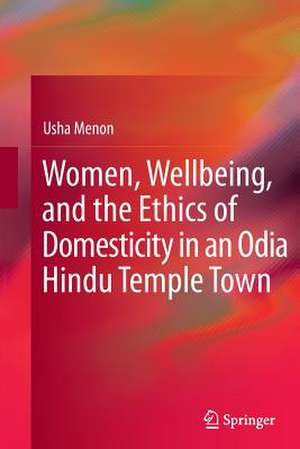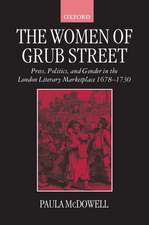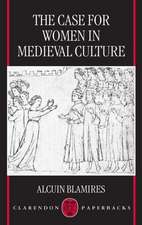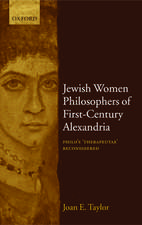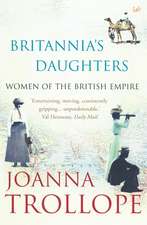Women, Wellbeing, and the Ethics of Domesticity in an Odia Hindu Temple Town
Autor Usha Menonen Limba Engleză Paperback – 7 mar 2015
| Toate formatele și edițiile | Preț | Express |
|---|---|---|
| Paperback (1) | 638.89 lei 43-57 zile | |
| Springer India – 7 mar 2015 | 638.89 lei 43-57 zile | |
| Hardback (1) | 645.14 lei 43-57 zile | |
| Springer India – 20 mar 2013 | 645.14 lei 43-57 zile |
Preț: 638.89 lei
Preț vechi: 751.64 lei
-15% Nou
Puncte Express: 958
Preț estimativ în valută:
122.27€ • 127.32$ • 103.33£
122.27€ • 127.32$ • 103.33£
Carte tipărită la comandă
Livrare economică 10-24 martie
Preluare comenzi: 021 569.72.76
Specificații
ISBN-13: 9788132217367
ISBN-10: 8132217365
Pagini: 266
Ilustrații: XIX, 244 p. 9 illus.
Dimensiuni: 155 x 235 x 14 mm
Greutate: 0.38 kg
Ediția:2013
Editura: Springer India
Colecția Springer
Locul publicării:New Delhi, India
ISBN-10: 8132217365
Pagini: 266
Ilustrații: XIX, 244 p. 9 illus.
Dimensiuni: 155 x 235 x 14 mm
Greutate: 0.38 kg
Ediția:2013
Editura: Springer India
Colecția Springer
Locul publicării:New Delhi, India
Cuprins
Chapter 1: Women, Wellbeing and the Ethics of Domesticity: An Introduction.- Chapter 2: Entering the Temple Town of Bhubaneswar.- Chapter 3: Odia Hindu Ways of Thinking.- Chapter 4: Perceptions of Femaleness.- Chapter 5: Images of the Life Course.- Chapter 6: Managing the Household: Achieving Control, Being Productive, Distributing Resources.- Chapter 7: The Auspicious Heart: Dominance, Productivity, and Coherence.- Chapter 8: Managing Life and its Processes.- Chapter 9: The Temple Town as a Microcosm.- Chapter 10: Conclusions.
Notă biografică
Usha Menon received her Ph. D. (with Honors) in Human Development from the University of Chicago in 1995. She has done fieldwork in the temple town of Bhubaneswar in Odisha, as well as in the northern Indian city of Meerut. She has written extensively on different aspects of Hindu society and civilization, in particular on goddess worship, family dynamics, gender relations, Hindu morality, Hindu women and liberal feminism, and Hindu–Muslim religious violence.
Textul de pe ultima copertă
This book is a detailed ethnography of traditional, predominantly upper-caste, sequestered Hindu women in the temple town of Bhubaneswar in Odisha, a state in eastern India. It elaborates on a distinctive paradigm of domesticity and explicates a particular model of human wellbeing among this category. Part of the growing literature in “third wave” or “multicultural feminism”, it seeks to broaden the parameters of feminist discourse by going beyond questions of individual liberty or gender equality to examine the potential for female empowerment that exists in the context of these women’s lives. Its aims are twofold: first, to represent these women in ways that they themselves would recognize; and, second, to interpret, rather than merely “translate”, the beliefs and practices of the temple town such that their underlying logic becomes readily accessible to readers, even those unfamiliar with the Hindu world.
Caracteristici
It presents a cultural model of subjective or psychological wellbeing It is a fine-grained analysis of a particular paradigm of domesticity It examines the degree to which individual liberty and gender equality—the values espoused by liberal feminism—are universally relevant
